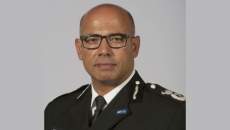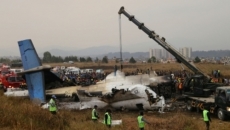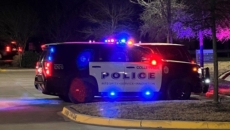OTTAWA - The World Health Organization decided Monday not to declare an end to the COVID-19 global public health emergency.
Tedros Adhanom Ghebreyesus, the director-general of the international body, said Monday "there is no doubt that we're in a far better situation now" than a year ago, when the highly transmissible Omicron variant was at its peak.
But Tedros warned that in the last eight weeks, at least 170,000 people have died around the world in connection with the SARS-CoV-2 virus. He called for at-risk groups to be fully vaccinated, an increase in testing and early use of antivirals, an expansion of lab networks, and a fight against "misinformation" about the pandemic.
"We remain hopeful that in the coming year, the world will transition to a new phase in which we reduce hospitalizations and deaths to the lowest possible level," he said.
My remarks at the opening of the @WHO Executive Board #EB152 https://t.co/2PMMVGNnKS
— Tedros Adhanom Ghebreyesus (@DrTedros) January 30, 2023
What would it mean if the WHO had decided to lift that designation?
By declaring a global emergency, the WHO essentially sounded the alarm on a serious worldwide health risk that required international co-operation.
It triggered a legally binding response among WHO member countries, including Canada, and allowed the organization to make temporary recommendations to those countries to prevent or deal with the threat.
Over the last few years those recommendations have included quarantining infected people and their close contacts and border testing and closures.
The formal designation was made on Jan. 30, 2020, when 99 per cent of confirmed COVID-19 cases were still restricted to China.
Even if that designation is lifted, it doesn't mean the pandemic is over or that the threat has ended.
Why was the WHO considering it now?
Monday marks three years to the day since Tedros first declared the then little-understood coronavirus a global health emergency.
Since then, a committee of global experts has met every three months to offer advice on whether the pandemic still meets that definition.
"As we enter the fourth year of the pandemic, we are certainly in a much better position now than we were a year ago when the Omicron wave was at its peak and more than 70 thousand deaths were being reported to WHO each week," Tedros told the committee Friday.
At the previous meeting in October, he said weekly reported COVID-19 deaths had nearly reached their lowest levels since the beginning of the pandemic.
On Friday though, Tedros appeared to caution the committee against being too optimistic.
He said the number of weekly deaths had been rising since early December, particularly since public health restrictions were lifted in China.
"In total, over the past eight weeks, more than 170,000 deaths have been reported. The actual number is certainly much higher," he said.
He also reminded the experts the pandemic response remains "hobbled" in countries without COVID-19 vaccines and therapeutics.
Even in countries with such tools at their disposal, public trust in those life-saving medicines has been undermined by disinformation campaigns, health systems remain overwhelmed because of staff shortages, and COVID-19 surveillance efforts have been massively scaled down.
What will Canada do differently once the WHO declares the emergency over?
Nothing much. At a press conference Friday, Canada's chief public health officer Dr. Theresa Tam said no matter what the WHO decided, Canada would continue to track cases, serious illnesses and deaths, as well as roll out vaccination campaigns.
Cases, hospitalizations and deaths associated with the virus spiked noticeably over Christmas and in early January, Tam said, but all now appear to be trending down.
"We mustn't, I think, let go of the gains that we've had in the last several years," she said.
"I think whatever the decision is made by the director-general of WHO, I think we just need to keep going with what we're doing now."
Whose decision was it not to end the emergency?
The final call was ultimately up to Tedros, but he was informed by the advice of the emergency committee.
The group, first struck in 2020 when the threat of COVID-19 first came to light, voted Friday on whether or not to maintain the formal emergency designation.
When will the pandemic finally be over?
It's still difficult to say because COVID-19 is still spreading rampantly around the world.
The WHO declared COVID-19 a pandemic a month and a half after designating it a global emergency, and at the time Tedros took pains to explain the two classifications are not one and the same.
"Describing the situation as a pandemic does not change WHO’s assessment of the threat posed by this virus. It doesn’t change what WHO is doing, and it doesn’t change what countries should do," Tedros said on March 11, 2020.
Last fall he declared the end of the pandemic was "in sight," but it is difficult to say when it will fully come into view.




